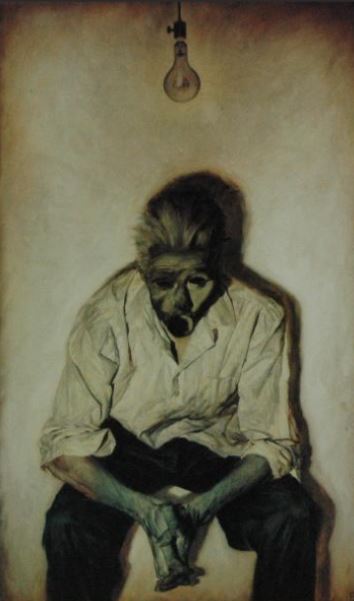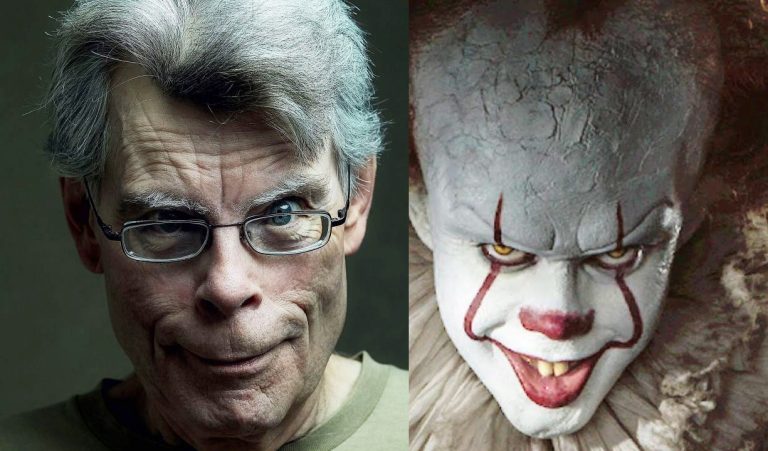Who Is The God Of Stephen King’s Universe?
In the vast and imaginative universe created by the legendary author Stephen King, there is a question that lingers in the minds of fans and readers alike: Who is the God of Stephen King’s universe? While King’s works are filled with supernatural beings, dark forces, and otherworldly powers, the concept of a singular deity may not be as straightforward as it seems. Join me as we delve into the depths of King’s fictional realm and explore the enigmatic presence of a divine being.
In the realm of Stephen King’s imagination, the existence and nature of a supreme being are shrouded in mystery. Unlike traditional religious narratives, King’s universe is a kaleidoscope of supernatural entities and parallel dimensions, where gods and demons coexist with ordinary mortals. It is a world where the line between good and evil is often blurred, and the concept of a singular God is not easily defined. However, amidst the chaos and darkness, there are glimpses of higher powers, ancient forces, and cosmic entities that shape the fate of King’s characters.
So, who is the God of Stephen King’s universe? Is it the malevolent Crimson King, the embodiment of evil and chaos? Or is it the benevolent and mysterious Turtle, a cosmic entity said to have created the universe itself? Perhaps it is the Tower, a central symbol that connects and influences the various dimensions in King’s multiverse. The truth may never be fully revealed, but the wonder and intrigue that surround this question only add to the allure of King’s captivating storytelling. Join me as we embark on an exploration of the divine, the supernatural, and the unknown in Stephen King’s extraordinary literary universe.

Who is the God of Stephen King’s Universe?
Stephen King is a renowned author known for his captivating and thrilling stories. His extensive body of work has created a vast universe interconnected by recurring themes, characters, and references. Within this universe, one question that often arises is, “Who is the God of Stephen King’s universe?” In this article, we will delve into the concept of a higher power in King’s works and explore the various interpretations and manifestations of this divine presence.
The Multifaceted Nature of the Divine
In Stephen King’s universe, the concept of God is multi-layered and multifaceted. It is important to note that King’s portrayal of the divine is not confined to a single traditional interpretation. Instead, he presents different aspects of the divine through various characters, events, and supernatural forces that shape his narratives.
One key element in King’s universe is the existence of powerful beings that possess god-like qualities. These beings often take on different forms and roles, serving as conduits for supernatural forces. They may be ancient entities, cosmic forces, or even personifications of abstract concepts. Their presence and influence shape the events and outcomes of the stories, blurring the line between mortal and divine.
The Dark Tower and Gan
One prominent example of a divine presence in Stephen King’s universe is found in his magnum opus, “The Dark Tower” series. At the heart of this epic saga stands the enigmatic figure known as Gan. Gan is often referred to as the “Supreme Being” or the “All-In-All” and is considered the primary deity of King’s universe.
Gan is portrayed as a metaphysical force that governs the balance of the universe. It is through Gan’s influence that the fabric of reality is maintained. The characters in “The Dark Tower” series often encounter manifestations of Gan, whether in the form of visions, dreams, or direct communications. Gan’s presence is felt throughout the series, guiding and shaping the destinies of the characters.
The Crimson King and Other Dark Forces
On the opposing end of the divine spectrum, Stephen King’s universe also explores the existence of malevolent forces that can be seen as god-like in their own right. One such example is the character known as the Crimson King. The Crimson King embodies chaos, destruction, and evil, wielding immense power that rivals the forces of Gan.
The presence of these dark forces introduces a dichotomy between good and evil, with characters often caught in the middle of a cosmic struggle. It is through the interactions between these divine entities that the narratives of Stephen King’s stories unfold, creating a rich tapestry of supernatural elements.
The Role of Mortals in Stephen King’s Universe
While the divine entities in Stephen King’s universe hold immense power and influence, it is ultimately the mortal characters who drive the stories forward. Mortals play a crucial role in the cosmic battles between good and evil, often serving as instruments or pawns in the larger schemes of the divine beings.
Throughout King’s works, mortal characters face trials and tribulations that test their faith, morality, and resilience. They are confronted with the existence of a higher power and must grapple with their own beliefs and understanding of the divine. These mortal perspectives provide a relatable lens through which readers can explore the complex themes of spirituality and existentialism in King’s universe.
The Power of Belief
In Stephen King’s universe, the power of belief is a recurring theme that impacts both mortal characters and the divine entities. The actions and intentions of mortals have the potential to shape the course of events, influencing the outcome of cosmic battles and the balance of power between the forces at play.
The belief in a higher power, whether benevolent or malevolent, acts as a driving force for characters, motivating their actions and shaping their destinies. This interplay between mortal belief and the divine sets the stage for the dramatic conflicts and resolutions that are characteristic of King’s storytelling.
In conclusion, Stephen King’s universe is a complex and multifaceted realm where the divine takes on various forms and manifestations. From the enigmatic figure of Gan to the malevolent presence of the Crimson King, the divine entities in King’s works shape the narratives and challenge the mortal characters. Through the exploration of spirituality, belief, and the interplay between mortals and the divine, King invites readers to ponder the mysteries and complexities of the universe he has created. So, dive into the pages of his books and immerse yourself in a world where gods and mortals collide.
Key Takeaways: Who is the God of Stephen King’s Universe?
- In Stephen King’s universe, the concept of God is often ambiguous and open to interpretation.
- One recurring entity referred to as a god-like figure is the Crimson King.
- The Crimson King is a powerful antagonist who appears in several of King’s novels, representing chaos and evil.
- Other supernatural beings, such as It and the Dark Tower, also have god-like qualities within the Stephen King universe.
- Overall, Stephen King’s universe presents a complex and multifaceted understanding of the divine, with various entities embodying different aspects of godliness.
Frequently Asked Questions
Curious about the God of Stephen King’s universe? Here are some frequently asked questions to satisfy your curiosity!
1. What role does the God play in Stephen King’s universe?
In Stephen King’s universe, the concept of God is often explored through supernatural forces and mysterious entities. While there isn’t a singular God in the traditional sense, there are powerful beings that can be considered godlike. These entities possess immense power and influence over the events that unfold in King’s stories.
These godlike beings often shape the destinies of characters and manipulate the forces of good and evil. They can represent both benevolence and malevolence, blurring the lines between notions of God and the Devil. Their presence adds an element of cosmic horror and metaphysical intrigue to King’s universe.
2. Can you give examples of godlike beings in Stephen King’s universe?
One notable godlike being in Stephen King’s universe is the Crimson King. He is a malevolent entity with immense supernatural powers and serves as a recurring antagonist in several of King’s books, including “The Dark Tower” series. The Crimson King seeks to bring chaos and destruction to the multiverse, making him a formidable force of evil.
Another example is It, also known as Pennywise the Dancing Clown. It is an ancient creature that feeds on the fear of children and can shape-shift into their worst nightmares. It possesses godlike powers and has existed for centuries, haunting the town of Derry in various forms.
3. Are there any benevolent godlike beings in Stephen King’s universe?
Yes, there are benevolent godlike beings in Stephen King’s universe as well. One example is the character of Mother Abagail in “The Stand.” She is a 108-year-old woman who receives visions from God and becomes a spiritual leader for a group of survivors in a post-apocalyptic world. Mother Abagail represents the forces of good and serves as a beacon of hope in the face of darkness.
Another example is the character of Randall Flagg, who appears in multiple King novels. While Flagg is often portrayed as a malevolent force, he also embodies elements of trickster gods from mythology. His complex nature blurs the line between good and evil, adding depth to the concept of godlike beings in King’s universe.
4. Are there any connections between the godlike beings in Stephen King’s universe?
Stephen King’s universe is known for its interconnectedness, and there are indeed connections between the godlike beings. The Crimson King, for example, is often depicted as a powerful adversary of the protagonist Roland Deschain in “The Dark Tower” series. In some instances, characters like Randall Flagg and Pennywise are portrayed as agents of the Crimson King, further linking their stories together.
These connections create a sense of a larger cosmic battle between the forces of good and evil, with the godlike beings serving as key players in the overarching narrative. Exploring these connections adds depth and richness to King’s fictional universe.
5. How does Stephen King’s portrayal of godlike beings differ from traditional religious beliefs?
Stephen King’s portrayal of godlike beings diverges from traditional religious beliefs in several ways. Rather than adhering to a specific religious doctrine, King’s universe explores the concept of godlike beings through a blend of horror, fantasy, and metaphysical elements.
King’s godlike beings are often depicted as flawed, complex, and enigmatic entities that defy easy categorization. They embody both good and evil, challenging traditional notions of divine morality. King’s exploration of these themes adds a unique perspective to the concept of godlike beings in literature.
The Stephen King Multiverse Finally Explained
Final Thought: Unveiling the Divine in Stephen King’s Universe
As we delve into the intricacies of Stephen King’s vast literary universe, one burning question arises: who is the God of this captivating realm? While King’s works are filled with supernatural forces, eerie creatures, and nightmarish scenarios, the concept of a traditional deity may not be as prominent. Instead, King weaves together a tapestry of cosmic entities, ancient forces, and metaphysical powers that shape the fates of his characters. While we may not find a singular God in the conventional sense, the divine presence in King’s universe is undeniable.
Within Stephen King’s multiverse, the divine takes on various forms, often reflecting the duality of good and evil. From the enigmatic Crimson King, a malevolent entity who seeks to unravel the fabric of reality, to the benevolent Mother Abagail in “The Stand,” who represents hope and resilience in the face of adversity, these powerful beings exert their influence over the lives of the characters and the outcomes of their journeys. It is through these larger-than-life entities that King explores the age-old battle between light and darkness, showcasing the eternal struggle between forces of good and evil.
In conclusion, while Stephen King’s universe may not have a traditional God figure, his works are imbued with a sense of the divine. Whether in the form of cosmic forces, ancient entities, or archetypal characters, King masterfully crafts a world where the supernatural intertwines with the human experience. It is through these elements that he invites readers to ponder the nature of good and evil, the fragility of existence, and the power of hope. So, step into the captivating realm of Stephen King’s universe and immerse yourself in the mysteries that lie beyond the veil of reality.






